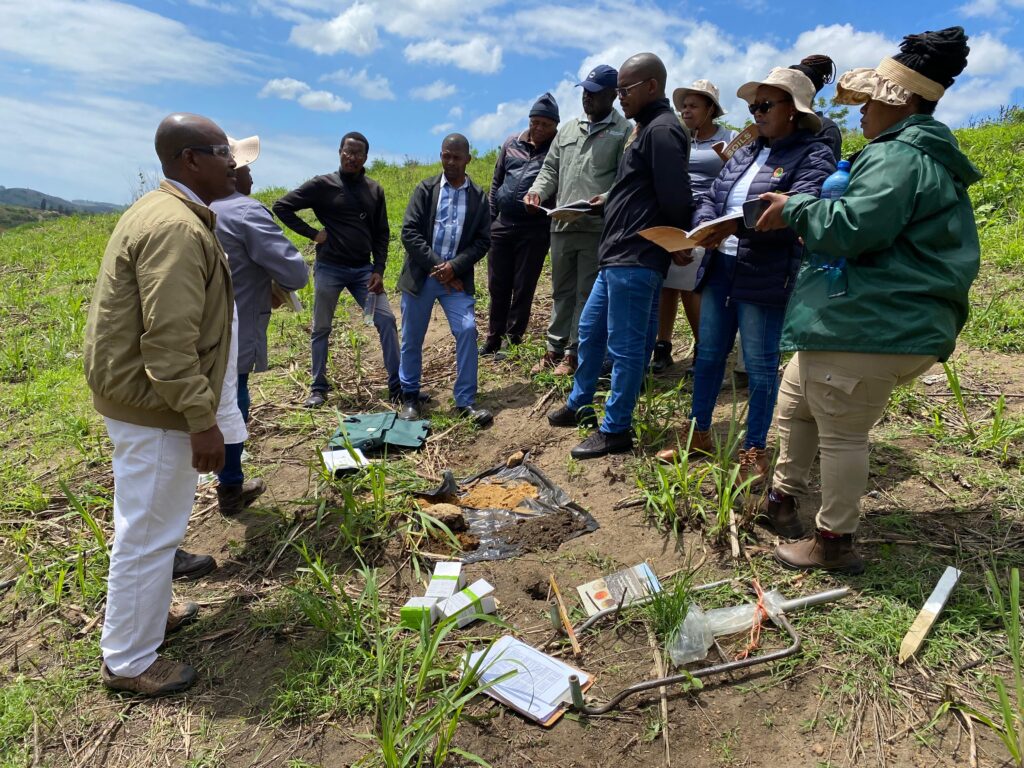Improving small-scale grower sustainability through soil management
Small-Scale Grower (SSG) sustainability is essential to the sugar industry’s success. To help SSGs produce high-quality sugarcane and achieve better yields, they need both skills and sound advice from Extension Specialists. However, a lack of soil information in SSG regions hinders effective decision-making and negatively affects productivity. To address this, SASRI has launched a project led by soil scientist Dr Thandile Mdlambuzi. The project focuses on using soil information to determine regional production potential and developing a starter soil database for long-term use.
To date, the project has covered many regions including Midlands North, Midlands South, Felixton, Pongola, and the North Coast. Various soil types have been identified, such as Sweetwater, Kranskop, and Nomanci in the Midlands, and Glenrosa, Oakleaf, and Hutton in other regions. While many of these soils have high potential, yields remain below capacity due to several challenges. These include the following:
- Bypassing important practices such as soil sampling and analysis, which leads to improper or missed fertiliser application.
- Many growers rely on older sugarcane varieties such as N12, N37, N55, which limits productivity compared to newer, high-yielding options.
- In some areas, nutrient deficiencies (particularly phosphorus) and issues like high acid saturation were found to be limiting factors for higher sugarcane yields.
- Growers also tend to prioritise herbicide use over fertilisers, further exacerbating soil fertility problems.
- There is limited access to seedcane of newer varieties.
- Stronger extension support is needed to bridge knowledge gaps.
To address these issues, several interventions have been implemented or recommended:
- Lime is being provided by the KwaZulu Natal Department of Agriculture in regions such as Midlands South to combat soil acidity.
- The promotion of newer, high-yielding sugarcane varieties to improve productivity has been recommended to SSGs for most of the regions already surveyed.
- Training and capacity-building initiatives for SSGs were highlighted as essential, particularly focusing on the importance of soil sampling and analysis, soil management, and fertiliser use.
- SASRI projects are pivotal in supporting SSGs and extension specialists by improving soil and crop management practices, ultimately driving better yields and sustainable SSG sugarcane production.
The project is yet to cover the South Coast, Amatikulu and Mfolozi in KwaZulu Natal, and SSG areas in Malelane and Komatipoort (Mpumalanga).


